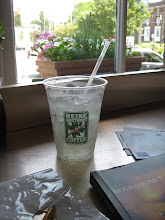A Journey through history with the haiku form
Japan in the 15th century:
1. The poetic form named "renga" was in vogue. (Renga is a poem several poets create cooperatively. Members alternately add verses of 17 syllables (5, 7, and 5 syllables) and those of 14 syllables (7 and 7 syllables), until they complete a poem generally composed of 100 verses.)
2. It was considered a dignified academic poem. Members were traditionally expected to present their verses following the medieval aesthetics and quoting the classics.
Japan in the 16th century:
1. Instead of the renga, it was the "haikai" - humorous poem - that gained notoriety. (Haikai (haikai-renga) is a poem made of verses of 17 and 14 syllables like renga, but it parodies renga introducing modern vulgar laughter. Haikai poets used plays on words and treated preferably things of daily life that the renga hadn't found interesting.)
2. The first verse of the renga and the haikai is called "hokku". Haikai poets sometimes presented their hokkus as independent poems; these were the origin of the haiku.
3. It was traditionally demanded to adopt a kigo (seasonal word: word reffering to a season) in the first verse of the renga and the haikai. Therefore, they, the poets during the 16th century, introduced a kigo in a hokku (and in a haiku) too.
Japan and Basho Matuso
1. Basho Matsuo is known as the first great poet in the history of haikai (and haiku). He too, wrote poems using jokes and word-plays, in his early stages, as they were in fashion, but began to attach importance to the role of thought in the haikai (especially in the hokku) from around 1680.
2. The school of thought of Tchouang-tseu, a philosopher in the 4th century B.C., influenced Basho greatly, and he often quoted the texts of "The Book of master Tchouang" in his hokkus.
Then come, Buson and Takahama, and the rest of the crowd
Examples of original haikus
Sleep on horseback,
The far moon in a continuing dream,
Steam of roasting tea.
Spring departs.
Birds cry
Fishes' eyes are filled with tears
Summer zashiki
Make move and enter
The mountain and the garden
or:
Short summer night.
A dewdrop
On the back of a hairy caterpillar.
A mosquito buzzes
Every time flowers of honeysuckle fall.
Four or five men dance in a circle.
Above them
The moon is about to drop.
Thoughts?


3 Comments:
To answer that, you have to examine your writing objectively...Is your haiku-writing different from Buson's? You bet! You are a teenager from the brave new century, he is a wise sage who confounded the form and gave it light. Ezra Pound loved the form, found it appealing since he felt that the only way to be truthful is to depict the image without passing in on judgment, as it is, suspended in time.
Thursday, 17 February, 2005
What do you think that is the purpose of haikus?
Friday, 18 February, 2005
It certainly looks that way for a language such as English, or Macedonian. But do remember that it was a form which came out of the structure of the Japanese language...which is a different matter all together
Monday, 21 February, 2005
Post a Comment
<< Home